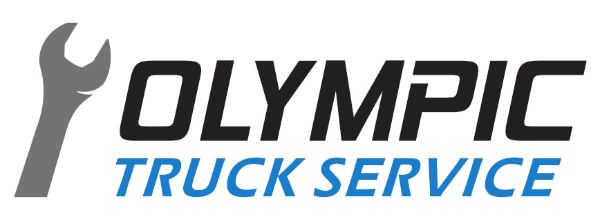If you manage a fleet of commercial vehicles, you know how critical reliability is to your operations. One breakdown can mean lost time, missed deadlines, and increased costs. That’s where preventive maintenance at Olympic Truck comes in—a smart and strategic approach to fleet repair that helps you avoid unnecessary downtime and keep your vehicles in peak condition.
Preventive maintenance is more than just oil changes. It’s a comprehensive plan that includes regular inspections, fluid replacements, part replacements based on mileage, and scheduled service intervals based on manufacturer recommendations. When you work with a professional fleet repair shop like Olympic Truck, these services are tailored to your specific fleet, whether you operate work vans, diesel trucks, or delivery vehicles.
Here are some key services included in a proactive fleet repair maintenance plan:
- Oil and Filter Changes: Routine oil changes help reduce engine wear, improve fuel efficiency, and prevent overheating. Dirty or degraded oil can cause friction and lead to engine failure. A well-maintained fleet will follow oil change intervals based on driving conditions and load demands.
- Brake Inspections: Brakes wear out faster on fleet vehicles due to frequent stops and heavy loads. Regular brake inspections and pad replacements are critical for safety and compliance.
- Transmission Service: Transmission fluid breaks down over time and can cause shifting issues or transmission failure. Flushing and replacing fluid as part of routine fleet repair keeps performance smooth and reliable.
- Tire Maintenance: Regular tire rotations, alignments, and pressure checks extend tire life, improve handling, and prevent blowouts. Uneven tread can also signal underlying issues like suspension misalignment.
- Battery Testing: Battery failure is one of the leading causes of roadside breakdowns. Fleet vehicles require routine battery load testing and terminal cleaning, especially in extreme climates.
- Cooling System Service: A vehicle's radiator, thermostat, and coolant are essential for engine temperature regulation. Preventive fleet repair includes coolant flushes and inspections for leaks, corrosion, and fan performance.
- Suspension and Steering Checks: Worn shocks, bushings, or steering components can affect handling and tire wear. Regular inspections help spot problems early.
- Diagnostic Scans: Advanced diagnostic tools allow technicians to catch potential issues with sensors, emissions systems, and onboard computers—before they trigger a warning light or lead to a breakdown.
Keep a Record of Your Fleet Vehicle’s Services
Beyond the physical services, one of the biggest advantages of professional fleet repair is tracking and documentation. A reputable fleet repair shop will maintain digital records of every service, upcoming maintenance schedules, and technician notes. This helps fleet managers stay organized, plan ahead, and reduce the risk of surprise failures.
Proactive maintenance also leads to:
- Reduced long-term repair costs
- Improved fuel efficiency
- Increased resale value of fleet vehicles
- Safer operation for drivers
- Fewer compliance issues with DOT or FMCSA regulations
Invest in the Longevity of Your Fleet Business
The bottom line? Preventive maintenance isn’t just good practice—it’s a critical investment in your business. A dedicated fleet repair partner will help you create a custom service schedule that fits your fleet's needs and keeps your operations running without interruption.
If you're looking for reliable, data-driven fleet repair solutions, choose Olympic Truck in {{City} because we understand the unique demands of fleet management and offer consistent, transparent care. By prioritizing preventive maintenance at our fleet repair and maintenance facility, you're protecting your vehicles, your drivers, and your bottom line.


